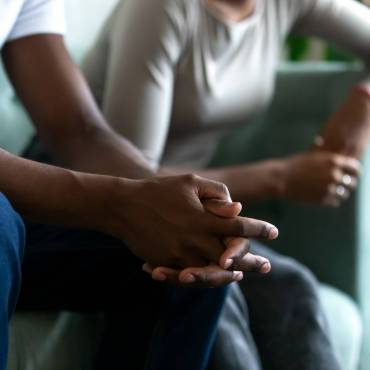There are many theories about the purpose of sleep:
1) Sleep is necessary for regenerating the body. The Restoration theory suggests that sleep is a time for the body to rest, heal, and regenerate in order to keep the body and mind functioning properly. Muscles relax, the metabolic rate (which is the amount of energy used per unit of time) decreases, and there is a reduced rate of neural activity in the brain (Gray, 2002); this enables the brain to preform its “housekeeping duties” that keep the mind and body healthy.
2) Sleeping is evolutionarily adaptive because it protects us from predators. The Preservation and Protection theory suggests sleep serves an adaptive function because it protects animals (humans are animals!) during that portion of the 24-hour day in which being awake would place the animal at greatest risk (Gray, 2002). More specially, this theory suggests that humans have adapted to sleep during the period of time when being awake would be the most dangerous for our species. This theory, however, remains controversial as other theorists posit that sleep takes us out of environmental awareness, ultimately putting us in greater danger than if we were awake.
3) Sleep is essential for learning. Horne (1988) suggests the primary function of sleep is to ensure wakeful cortical function (as cited in Espie, 2002). Pilcher and Walters (1997) found that sleep deprivation in college aged students led to decreased attention span in class which consequently had negative effects on academic performance. Additionally, these sleep-deprived students reported higher levels of effort towards cognitive tasks than their non sleep-deprived counterparts– yet did worse on them. Kelly, Kelly, & Clanton (2001) found that students who often slept less than 6 hours a night generally had lower grade point averages than students who slept 9 hours or more.
4) Sleep is necessary for the desire to learn and to motivate us for tasks. Edens (2006) found that amount of sleep affects the motivation that drives the student to excel academically. Additional studies found that sleep deprivation affects performance on little, simple tasks more than challenging tasks (Dement, 1979; Horne, 1979, 1988; as cited in Gray, 2002; Edens, 2006), and daily sleep loss results in a preference for easier tasks (Engle-Friedman et al., 2003). This finding may transfer into reduced motivation to succeed with life goals, and therefore negative self-evaluation, which may then progress to a depressive cycle. Sleep and depressed mood often coexist, and as clinicians we always wonder what came first. These studies suggest sleep deprivation may be the precursor for depressed mood for some individuals.
5) Sleep is necessary for emotional processing. People with disrupted sleep often complain of irritability and behavior volatility. A study by Zohar et al., (2005) found sleep loss increased dysphoric moods, amplified negative emotional consequences of upsetting daytime events, and weakened the positive consequences associated with rewarding or goal-enhancing activities. Dinges et al. (1997) found a progressive increase in emotional disturbances for people who were restricted for 4-5 hours a sleep a night for a week-long period, as subjects complained of emotional difficulties. This coincides with studies by Pallesen et al. (2004) and Van der Helm (2010) who found that sleep deprivation significantly disrupts the ability of the human brain to accurately recognize salient emotional expressions in others, and even one night of sleep deprivation led to a slower and less accurate ability to rate drawings of emotional facial expressions, respectively. The authors found that consistent with the trends in clinical mood disorders, healthy young females have a greater degree of sensitivity to the effects of sleep loss in the context of emotion dysregulation. Thus, there is compelling evidence for linkages between the regulation of sleep, emotion, and behavior (Alfano et al., 2009; Zohar et al., 2005; Pallesen et al., 2004; Johnson et al., 2000; Morrison et al.,1992).
All of the aforementioned theories lead to one conclusion: sleep is vital for a happy, healthy, productive life!
References
Alfano,A.C., Zakem, A.H., Costa, N.M., Taylor, L.K., & Weems, C.F. (2009). Sleep problems and their relation to cognitve factors, anxiety, and depressive symptoms in children and adolescents. Depression and Anxiety, 26, 503-512.
Dinges, D.F., Pack, F., Williams, K. Gillen KA, Powell JW, Ott GE, Aptowicz C,
Pack AI. (1997). Cumulative sleepiness, mood disturbance, and psychomotor vigilance performance decrements during a week of sleep restricted to 4-5 hours per night. Sleep, 20, 267-277.
Edens, K. (2006) The relationship of university students’ sleep habits and academic Motivation. NASPA Journal, 43(3), 432-445.
Engle-Friedman, Riela, Golan, Ventuneac, Davis, Jefferson, and Major (2003). The effect of sleep loss on next day effort. Journal of Sleep Research. 12(2), 113-124.
Espie. C.A. (2002). Conceptual issues in the development, persistence, and treatment of sleep disorder in adults. Annual Review of Psychology, 53, 215-243.
Gray, P. (2002). Psychology. Fourth Edition. Worth Publishers, New York.
Horne J. (1988). Why We Sleep. NY: Oxford University Press.
Johnson, E.O., Chilcoat, H.D., Breslau, N. (2000). Trouble sleeping and anxiety/depression in childhood. Psychiatry Research, 94, 93-102.
Kelly, W.E., Kelly, K,E., & Clanton, R.C. (2001). The relationship between sleep length and grade point. College Student Journal, 35(1), 84-86.
Morrsion, D.N., McGee, R., Stanton, W.R. Sleep problems in adolescence. Journal of the American Academy of Child & Adolescent Psychiatry, 31, 94-99.
Pallesen, S., Johnsen, B.H., Hansen, A, Eid J, Thayer JF, Olsen T, Hugdahl K. (2004). Sleep deprivation and hemispheric asymmetry for facial recognition reaction time and accuracy. Perceptual Motor Skills, 98, 1305-1314.
Pilcher, J. J., & Walters, A. S. (1997). How sleep deprivation affects psychological variables related to college students’ cognitive performance. Journal of College Health, 46(3), 121-126.
Van der Helm, E., Gujar, N., & Walker, M.O. (2010). Sleep deprivation impairs the accurate recognition of human emotions. Sleep, 33(2), 335-342).
Zohar, D., Tzischinsky, O., Epstein, R., Lavie, P. (2005). The effects of sleep loss on medical residents’ emotional reactions to work events: a cognitive-energy model. Sleep, 27, 47-54.




Add Comment